Thursday, April 2
| 10:30 a.m.–12:30 p.m. | "Entering a Foreign Country Within the US – Pine Ridge Reservation," Dorothy Mack [Lois Rosen], Kaneko
In 1977 when I married Selo Black Crow, a Sioux spiritual leader, and moved to Camp Lakota, no one spoke English. Customs were different, questions went unanswered. There was no electricity, no running water. But there was a 1918 cedar log ceremony house, a sweat lodge, and a sundance arbor. The car hood at the gate said: No alcohol, no drugs, no guns, no cameras or tape recorders. It was sacred land. We fenced in 800 acres near the Badlands and raised a herd of buffalo to fulfill the Lakota prophecy: "Bring back the buffalo, so the People will not starve." I also taught at Oglala Lakota College, and began writing about my 180-degrees-different world. Since then I have published many creative nonfiction pieces and taught Native American Literature. My books are Anuk-Ité: Double-Face Woman Poems (2012) and The Handless Maiden: A Lakota Mystery (2014). I will talk about telling true stories and how these stories can be used in fiction. My three lifetimes: I write to honor my native elders and traditional way of life in creative nonfiction, poetry, and mystery novels. |
| 1:30 – 2:30 p.m. | "Estrogens in the Environment: How We Can Study Them and Why We Should Care," Kira Egelhofer, Hanni Student Scholars [Joyce Zook], Ford 122
Estrogens are toxins that enter and threaten aquatic ecosystems through wastewater discharge. My research focuses on determining how quickly estrogens break down in the environment due to light exposure. Biography: I am an Alaskan who loves to hike, travel, and cook. I keep busy by conducting research, TAing, teaching science to elementary students through the Webber Program, working for the Admissions Office, and as a member of Delta Gamma. |
| 2:30–3:30 p.m. | "Jihad's Explanation of Extremism and Terrorism," Nathaniel Balk, Hanni Student Scholars [Mark Kasoff], Ford 122
To provide a better understanding of why Muslim extremists use terror tactics in the name of religion, this research project focuses on Islamic religious narratives and texts explaining Jihad. After defining Jihad, this project uses examples from the Quran, Hadiths (teachings or actions from the Prophet Muhammad), and doctrines from Muslim leaders. As interpreted by radical Islamists, these 'narratives justify violence and terrorism, though moderates in and outside of the Muslim world disagree. A critical examination is crucial to understanding certain actions and motives in modern Islam and can help explain why individuals or groups act the way they do. Biography: My focus lies in the Middle East arid North Africa region where I want to be an ambassador. I love serving my community whether that is in residence life, student government, or off campus. Furthermore, I love the St. Louis Cardinal. |
Tuesday, April 7
| 10:30 a.m.–11:30 a.m. | "Rhythm is it! Rhythm, Pulse, and Metric Modulation," Nikolas Caoile [Solveig Holmquist], Kaneko
Nikolas Caoile is the conductor of the Salem Chamber Orchestra. |
| 11:30 a.m.–12:30 p.m. | "How to Listen to and Understand Great Music, Video Lecture: Formal Challenges and Solutions in Early Romantic Music," Dr. Robert Greenberg [Solveig Holmquist], Kaneko
The paradox of the spontaneity and creative freedom of the composer at odds with the concept of preordained musical forms was recognized and dealt with in a variety of ways by Romantic composers. Some Romantic composers continued to use Classical-era forms and some used them contextually. Some abandoned them altogether, replacing them with new forms that included compositional miniatures. Two masters of this idiom were Franz Schubert, one of the greatest composers of lieder, and and Frederick Chopin, whose music for solo piano is unique in the repertoire. |
| 1:30 – 2:30 p.m. | "Wild," Katherine Farrell, Hanni Student Scholars [Deborah Ehlers ], Ford 122
Theatre is about human souls and how they connect to each other. How the soul of an actor connects to the soul of a character. The ideal center that Michael Chekhov teaches is about placing a 3 inch deep sun in your chest, which is similar to the solar plexus. Modern Dancer, Isadora Duncan, believes it to be the soul of the dancer. Theatre is about utilizing the soul in such a way that the actor or character cannot move or think without it. Every reaction is a gut reaction. it's real, raw, and organic. The idea of Sanford Meisner of "living truthfully under imaginary circumstances," to me, has to do with the truth that is the soul, which is living and always true, and the imaginary circumstances would be the world around you and the atmosphere surrounding you. The life of the character is living in the body of the actor. Theatre relies on human connection and longs for empathy. Through simple awareness of surroundings and others there is a way we can grow together as a theatre community. Theatre is the mind, body, and soul of human life. Biography: My name is Katie Farrell; I'm 22 years old, and from Portland, Oregon. Once upon a time my Grammie Jean once said to me, "Never stop loving, never stop learning, always be prepared, and never stop searching." Not only is this the best piece of advice I have ever received, but it was the last piece of advice she ever gave me–may she rest in peace. Over the years these words have manifested from the little voice inside my head, into my personal creed and the sole reason I choose to pursue a life in theatre. Be it the community of people I am constantly surrounded by, or the art form itself, theatre is something I will never stop loving. Numerous techniques, forms, or styles enable me to learn an art that thrives in an educational environment. Long hours of tech, the process, the raw, unsexy, and most often rewarding rehearsals continue to push me toward preparedness. When it comes to the pursuit of developing and creating new ways in which to tell the human experience, the search never ceases. Loving, learning, preparing, and searching are just the cornerstones of my human experience. Having the opportunity to collaborate with other theatre artists is truly a gift. Building these artistic communities with a diverse people creates empathy, and that is what theatre is. Theatre is the sharing of personal creeds, creating communities, and all experiences that make us human. My personal artistic goals stem from not only wanting to understand, but to be understanding. I wish to reach others by giving a handup rather than giving a hand-out. I succeed when my community succeeds. Connecting to the world as an artist starts with the roots of a strong community, and that is something I will never stop searching for. |
| 2:30–3:30 p.m. | "The Science of Stargazing: Pulsating Stars and Their Role in the Field of Astronomy," Benjamin Mow, Hanni Student Scholars [Gary Beck], Ford 122
Mankind has long been fascinated by stars seen in the night sky. Written records of skywatching date back to around 2000 BC, often being fantastical stories of the cosmos, but have progressed to the point of astrophysicists' being able to determine the internal structures of stars located millions of light years away. A host of information can be extracted from all types of stars, but pulsating stars, or stars that physically pulsate in size, are particularly well suited for astroseismology. This presentation will give a general background of astronomy, geared towards understanding the inner workings of pulsating stars. A case study will then be presented on the observation and analysis of an extremely rare type of pulsating star called GSC03144-00595 (CYGVAR), a star which I have been researching for the past year. I used the observatory at Zena farms to collect data over the summer of 2014, and proceeded to find the frequencies and amplitudes of pulsation. CYGVAR is of particular interest because the star pulsates in three independent modes simultaneously. Only five such stars are known to exist in the galaxy. Results show that CYGVAR has evolved significantly in the past three years, a surprising finding considering the long lifespan of stars. Biography: I am a senior physics major specializing in the field of astrophysics. Next year I will be attending a graduate program to attain a Masters of Science in mechanical engineering. Apart from my academic studies in physics and mathematics, I am also a member of Willamette's Cross Country and Track & Field team, as well as a participant in Willamette's music program, playing trumpet in Wind Ensemble and Trumpet Ensemble. |
Thursday, April 9
| 10:30 a.m.–12:30 p.m. | "Great Decisions: India Changes Course" [Jeanette Flaming], Kaneko
Pritam Rohila PH.D will be our presenter. He is a retired Neuropsychologist. Originally from India, he has been in the U.S. since 1969. Dedicated to promoting peace, Dr. Rohila has served as Executive Director of the Association for Communal Harmony in Asia since 1993, and of Oregonians for Peace since 2014. |
| 1:30 – 2:30 p.m. | History Video Series presentation hosted by Bob Muir, Ford 122 Description TBA |
| 2:30 – 3:30 p.m. | "The Country Wife," Willamette Theater Dept.[Deborah Ehlers], Ford 122
The Country Wife Director: Jonathan Cole DESCRIPTION Director Jonathan Cole and students will present to ICL. |
Tuesday, April 14
| 10:30 a.m.–12:30 p.m. | "From History to Mystery," Barbara Corrado Pope [Lois Rosen], Kaneko
An historian by training, Barbara Corrado Pope is a professor emerita at the University of Oregon, where she directed the Women’s Studies Program and the Clark Honors College. Her three novels, Cézanne’s Quarry (2008), The Blood of Lorraine (2010) and The Missing Italian Girl (2013) are set in late nineteenth-century France. |
| 1:30 – 3:30 p.m. | “The Shores of Newfoundland,” Evelynn Smith, Sharon Wright, Mark Kasoff, Ford 122 ICL members Evelynn Smith, Sharon Wright, and Mark Kasoff will share their knowledge, experiences, photography, and music of Newfoundland; our remote northern neighbor. Newfoundland is a beautiful rocky land, surrounded by the sea. It has a dramatic history, a unique culture, and an uncertain future. |
Thursday, April 16
| 10:30 a.m.–12:30 p.m. | "Texas History & Politics," Brent Burford [Judy Heltzel], Kaneko
Bio: |
| 1:30 – 2:30 p.m. | "The Oregon Supreme Court," Paul DeMuniz [Judy Heltzel], Ford 122
The Honorable Paul J. De Muniz was elected to the Oregon Supreme Court in 2000 and served as the court's Chief Justice and administrative head of the Oregon Judicial Department from January 2006 to May 2012. Between 1990 and 2000, he sat on the Oregon Court of Appeals and served as presiding judge on one of the three panels that comprise that body. Prior to ascending to the bench, Justice De Muniz was in private practice for 13 years with the Salem, Oregon, law firm of Garrett, Seideman, Hemann, Robertson and De Muniz P.C., where he specialized in complex criminal and civil litigation, as well as appeals. From 1975 to 1977, he was a deputy public defender for the State of Oregon. Paul De Muniz was raised by his mother in Portland, Oregon, and attended Portland's public schools. After finishing high school, he joined the U.S. Air Force and served a one-year tour of duty in Viet Nam. After his discharge from the service, Justice De Muniz received his bachelor degree from Portland State University in 1972 and his juris doctor from the Willamette University College of Law in 1975. De Muniz was the first Hispanic American elected to statewide office in Oregon. In 2010, Hispanic Business Magazine named him among the 100 most influential Hispanics in America. Today, he sits on the Board of Trustees of Willamette University and the World Affairs Council of Oregon. Justice De Muniz and his wife, Mary, reside in Salem, Oregon, and have three grown children and two grandchildren. |
| 2:30–3:30 p.m. | "Art Potpourri" [Sharon Wright], Ford 122 Presenters are ICL members: Derek Stables, Wayne Wallace and Wes Robinson |
Tuesday, April 21
| 9:00 a.m. - 4:00 p.m. | ICL Field Trip [Meredith & Mike Gilbert], The Pittock Mansion, Portland and Bob's Red Mill, Milwaukie First Destination: The Pittock Mansion
Transportation: A Charter Bus will be leaving the Mission Mill parking area at 9:00 a.m. and returning at 4:00 p.m. ICL Sponsors: Mike and Meredith Gilbert Cost: $30.00 |
Thursday, April 23
| 10:30 - 11:30 a.m. | "Music Potpourri Do-Over," (Solveig Holmquist), Kaneko If you attended ICL on the morning of March 5, you may remember that we were experiencing technical difficulties. A technician came to work on the problem, but by the time he left we'd lost class time and still hadn't gained full control of the sound system. As a result, we didn't have the chance to fully enjoy two of the selections in our Music Potpourri. This was really disappointing to all of us, and especially to the two presenters! So, as promised, we're having a do-over: Cathy Olcott will explain and play a movement from Tchaikovsky's Sixth Symphony, the "Pathetique", and Bob Cooper will share a beloved recording of his wife playing a Beethoven piano sonata at her culminating degree recital. We're in for some beautiful music, meaningful to both of them. |
| 11:30 a.m.–12:30 p.m. | "Collaboration Between Composer and Librettist: The Creation of 'To Be Certain of the Dawn'," Solveig Holmquist, Kaneko
This will be a condensed version of the presentation that was to be given by lyricist Michael Dennis Browne, recounting the process by which he and composer Stephen Paulus came to create the oratorio "To Be Certain of the Dawn", which was commissioned by Father Michael J. O'Connell and the Basilica of St. Mary, Minneapolis, Minnesota in honor of their special relationship with Rabbi Marcia Zimmerman and Temple Beth Israel of Minneapolis, Minnesota. Professor Browne has travel scheduling conflicts that necessitated canceling his appearance today. Solveig Holmquist, conducting the work on Sunday April 26, will fill in, having gained many insights over the past two years about the work and its creation process from Michael Dennis Browne. Composer Stephen Paulus tragically died from complications of a stroke in June, 2014. Excerpts of this dramatic work will be played, in conjunction with photographic images by Roman Vishniak that will be displayed as part of the performance. NOTE: TO BE CERTAIN OF THE DAWN WILL BE PERFORMED BY FESTIVAL CHORALE OREGON, ORCHESTRA, AND CHILDREN'S CHOIR AT 4:00 ON APRIL 26 IN THE HISTORIC ELSINORE THEATRE. Michael Dennis Browne came to the United States in 1965 from England, where he was born of mostly Irish ancestry in 1940. After graduating from the University of Iowa, he taught at Iowa, Columbia, Bennington, and the University of Minnesota. He is now a professor emeritus at the University of Minnesota, where he taught for thirty-nine years, served a term as director of the creative writing program, and was a member of the Academy of Distinguished Teachers. He teaches a workshop (“Believing in Writing”) each summer at St. John’s University in Collegeville, Minnesota, and frequently at the Iowa Summer Writing Festival in Iowa City. His most recent publications include Give Her the River, a picture book with paintings by Wendell Minor (Atheneum Books for Young Readers, 2004); Things I Can’t Tell You, poetry (Carnegie Mellon University Press, 2005); What the Poem Wants, essays on poetry (Carnegie Mellon, 2008). Browne’s poems have been published in many magazines and anthologies, and his awards include fellowships from the National Endowment for the Arts, the Bush Foundation, the Jerome Foundation, and the McKnight Foundation. Two of his collections have won the Minnesota Book Award for poetry. As a librettist, he has written many texts for music, working principally with composer Stephen Paulus. Their post-Holocaust oratorio, To Be Certain of the Dawn, was nominated for the Pulitzer Prize in music by the Minnesota Orchestra. Other composers he has worked with include John Foley S.J., David Lord, Carolyn Jennings, Juliana Hall, Stanford Scriven, John Armstrong, Donald Krubsack, and Craig Hella Johnson. He lives in Minneapolis and is married to Lisa McLean; their children are Peter, Mary, and Nellie. |
| 1:30–2:30 p.m. | "The Creation of Old South Portland as a Site of Jewish Memory," Ellen Eisenberg [Bob Muir], Ford 122
Education: Research and Teaching: Her research centers on the history of American immigrant and ethnic communities, particularly American Jewish communities. She is the author ofJewish Agricultural Colonies in New Jersey, 1882-1920 (1995). Her scholarship now centers on Jews in the Pacific West, and she is particularly interested in relationships between western Jews and other minority ethnic groups. Her work in this ara includes chapters in the anthologies Jewish Life in the American West(2002) and California Jews (2003) and articles in such journals as American Jewish History, The History Teacher, and theJournal of American Ethnic History. Her monograph, The First to Cry Down Injustice? Western Jews and Japanese Removal during WWII (2008), was a National Jewish Book Award finalist. Jews of the Pacific Coast: Reinventing Community on America's Edge, co-authored with Ava Kahn and Bill Toll, was published by the University of Washington Press in 2009. |
| 2:30 – 3:30 p.m. | "The Story of Human Language Video Series: A New Perspective on the Story of English," Prof. John McWhorter [Jinx Brandt], Ford 122
The preceding lectures allow us to see the history of English in a new light. English is, basically, one of today’s branches of Proto-IndoEuropean. The Germanic family that English belongs to was distinguished by odd consonant changes, changes in stress that encouraged endings to wear off, and possibly, an ancient encounter with a Semitic language, leaving words that do not trace to IndoEuropean at all. Then the branch of Germanic that the Angles, Saxons, and Jutes brought to England came to be learned as much by Viking invaders as by natives, which streamlined English into the one Germanic language without such distinctions as here and hither and the one Indo-European language of Europe with no gender marker. |
Tuesday, April 28
| 10:30 a.m.–11:30 a.m. | ICL Favorite Books [Erin Hanni], Kaneko Description TBA |
| 11:30 a.m.–12:30 p.m. | Contemporary Literature Discussion: "River of Doubt" [Ruthann Panck], Kaneko
|
| 1:30 – 2:30 p.m. | “A Visual Guide to the Universe: The Magnetic Beauty of the Active Sun” Video lecture, Prof. David M. Meyer (Gary Beck), Ford 122
Despite its optical constancy in the daytime sky to human eyes, the space view shows that the Sun frequently undergoes magnetic explosions with energies that dwarf anything in our earthly experience. Most of the time, these explosions result in nothing more than a night time auroral display on Earth. Other planets haven’t been so lucky. |
| 2:30–3:30 p.m. | "Writing Potpourri" [Lois Rosen], Ford 122 You’re most cordially invited to enjoy the mix of vivid, lively, wise writing of ICL writers: Betty Kasoff, Kasia Quillinan, Trevor Jacobson, David Engen, Wes Robinson, Kay Gerard, and Lois Rosen. |
Thursday, April 30
| 10:30 a.m.–12:30 p.m. | "ICL Members Up Close" [Don Gallagher], Kaneko ICL is made up of a very interesting group of folks with fascinating backgrounds. In this traditional session we will get to know a few of them a little better as we ask them to share an interesting story from their family, their work experience, or world experience. Today we will hear from the following ICL members, who will each share a 15 minute story: Wayne Wallace, Alice Sorenson, Kasia Quillinan, Erin Hanni, Roger Budke and maybe more! |
| 12:30 | End-of-Semester Luncheon followed by Annual General Meeting , Montag Den |


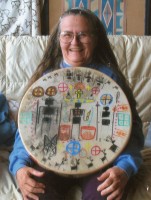 Our presenter is Dorothy Mack, who writes:
Our presenter is Dorothy Mack, who writes: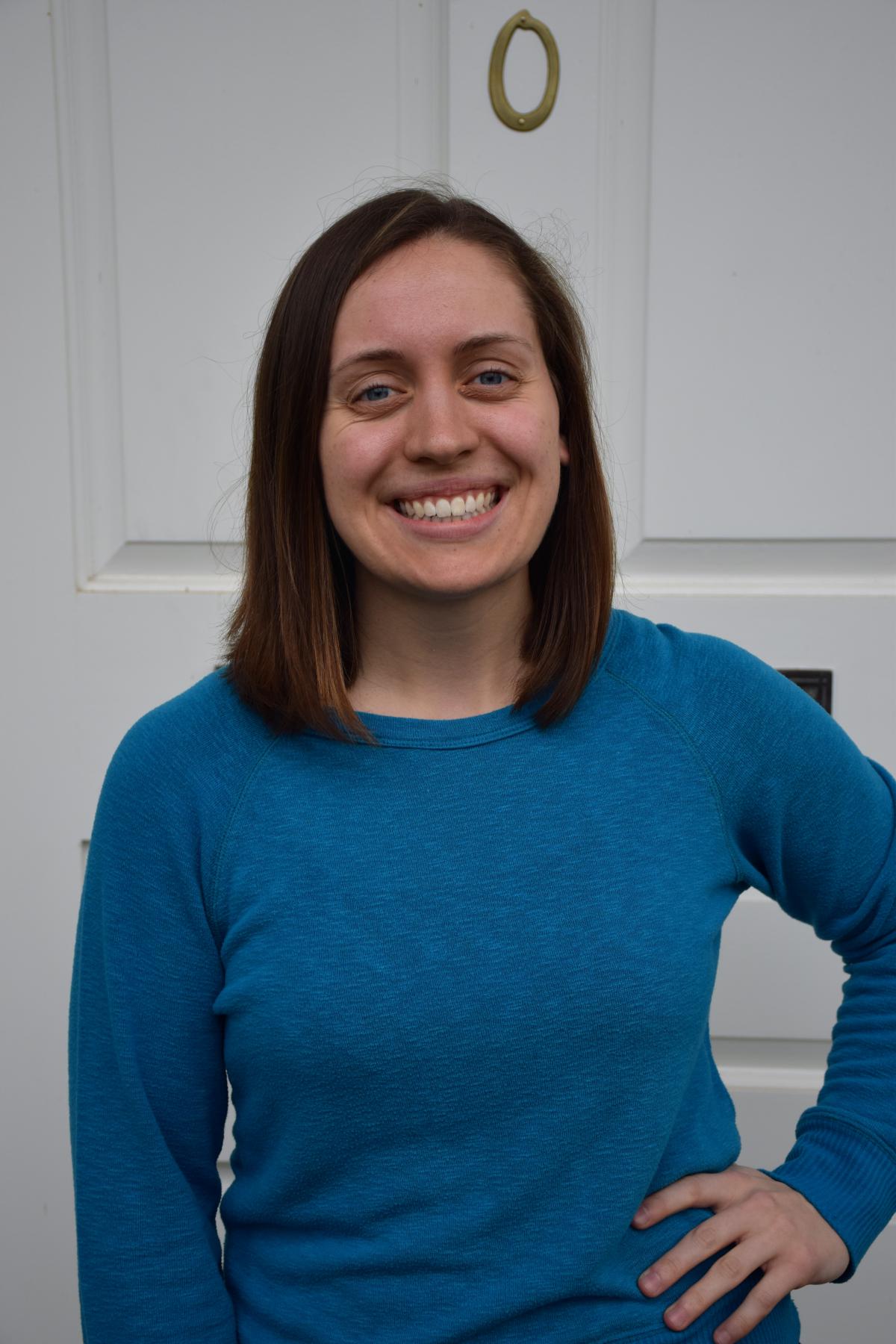 Major: Chemistry
Major: Chemistry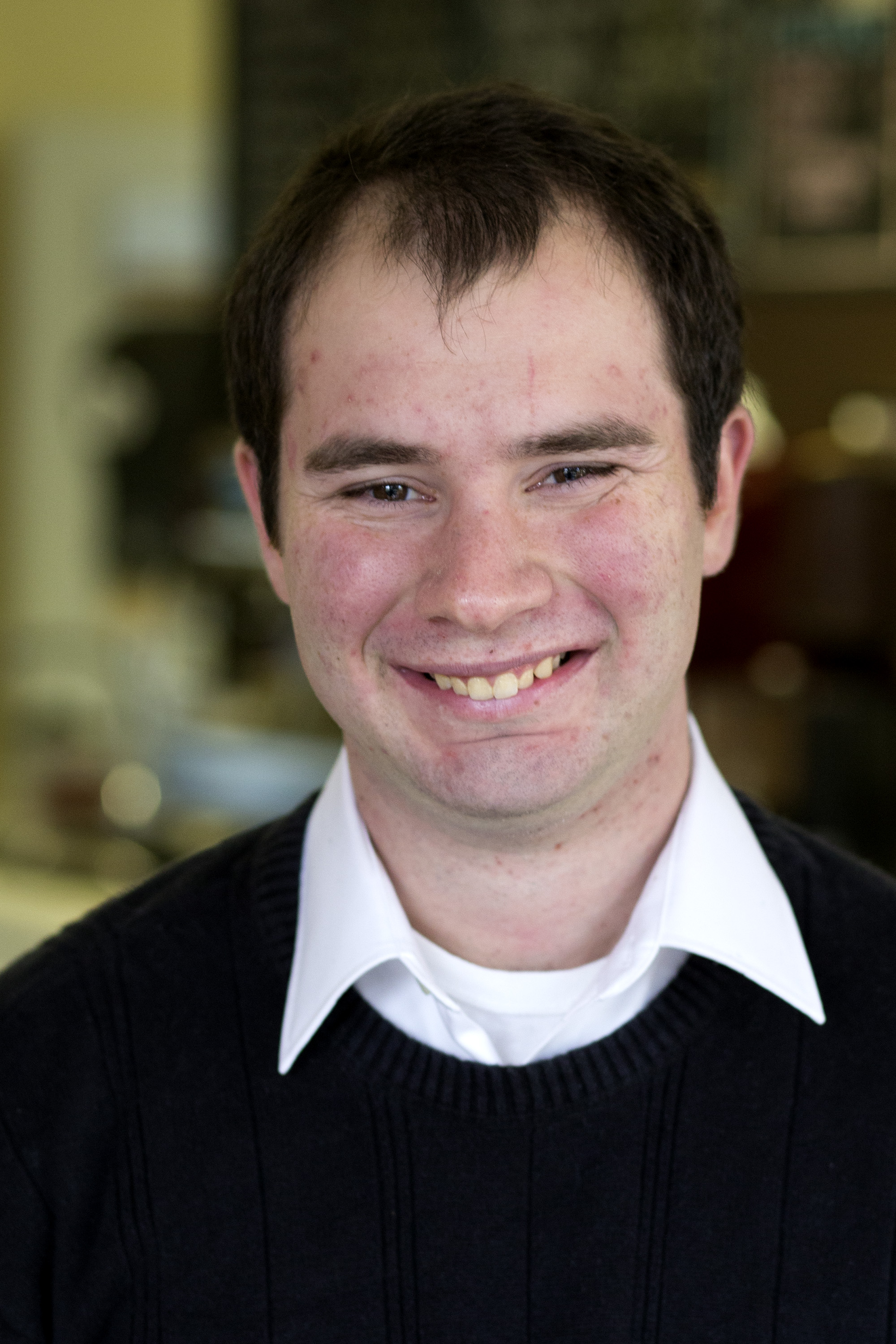 Major: Politics
Major: Politics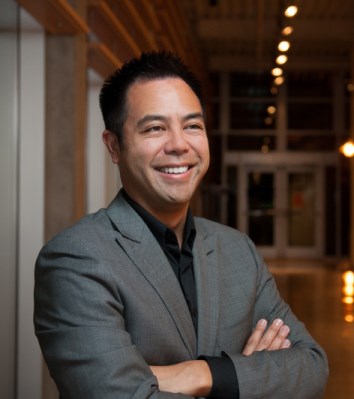 Classical music contains beautiful melodies and lush harmonies, but without a temporal framework, it would not make sense. The pulse of music, frequency of harmonic changes, and intensity of local rhythmic structure help to define character. More importantly, how musicians and composers shape time can have an impact on overall aesthetic satisfaction.
Classical music contains beautiful melodies and lush harmonies, but without a temporal framework, it would not make sense. The pulse of music, frequency of harmonic changes, and intensity of local rhythmic structure help to define character. More importantly, how musicians and composers shape time can have an impact on overall aesthetic satisfaction.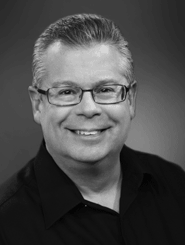
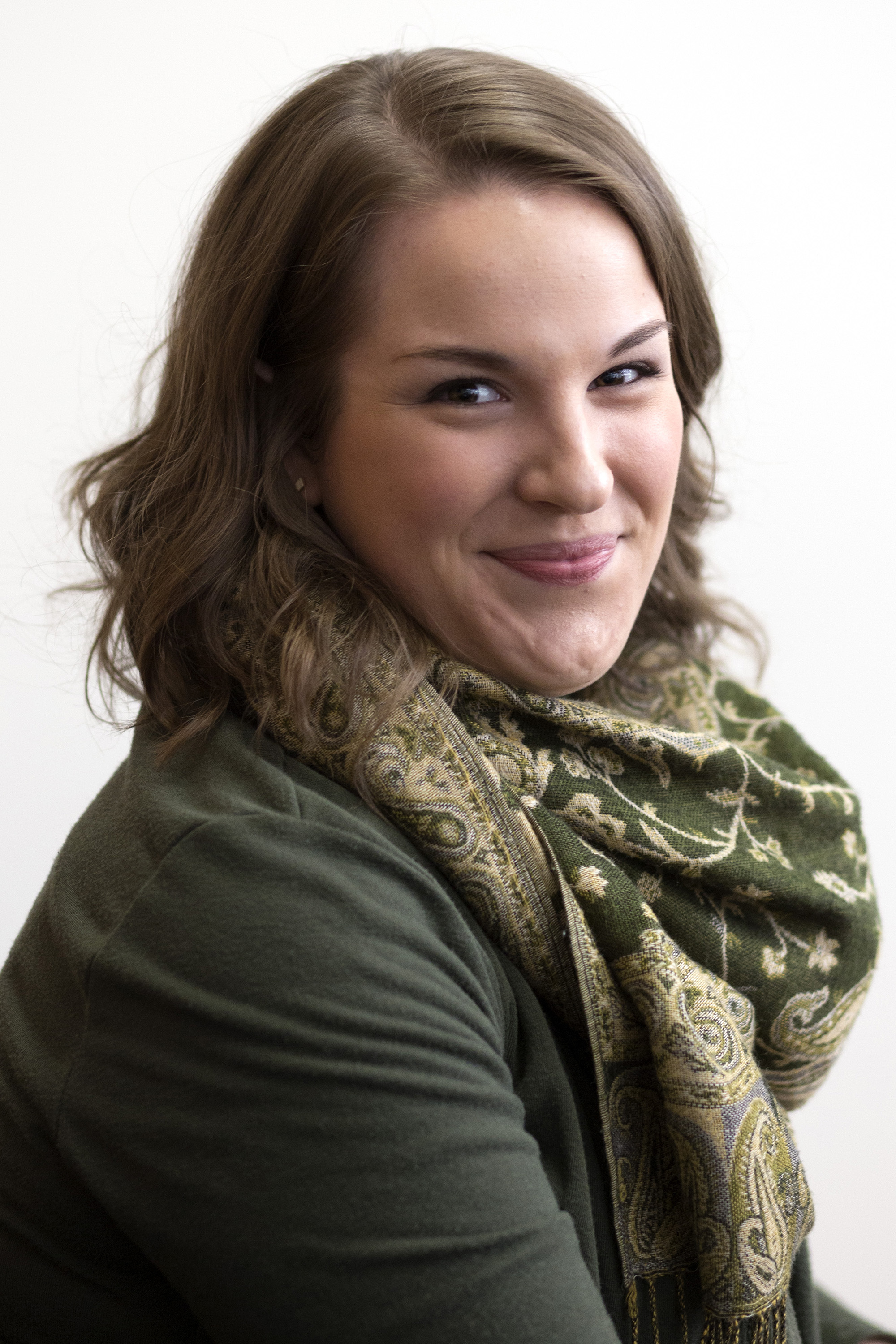 Major: Theatre Major- Acting Emphasis
Major: Theatre Major- Acting Emphasis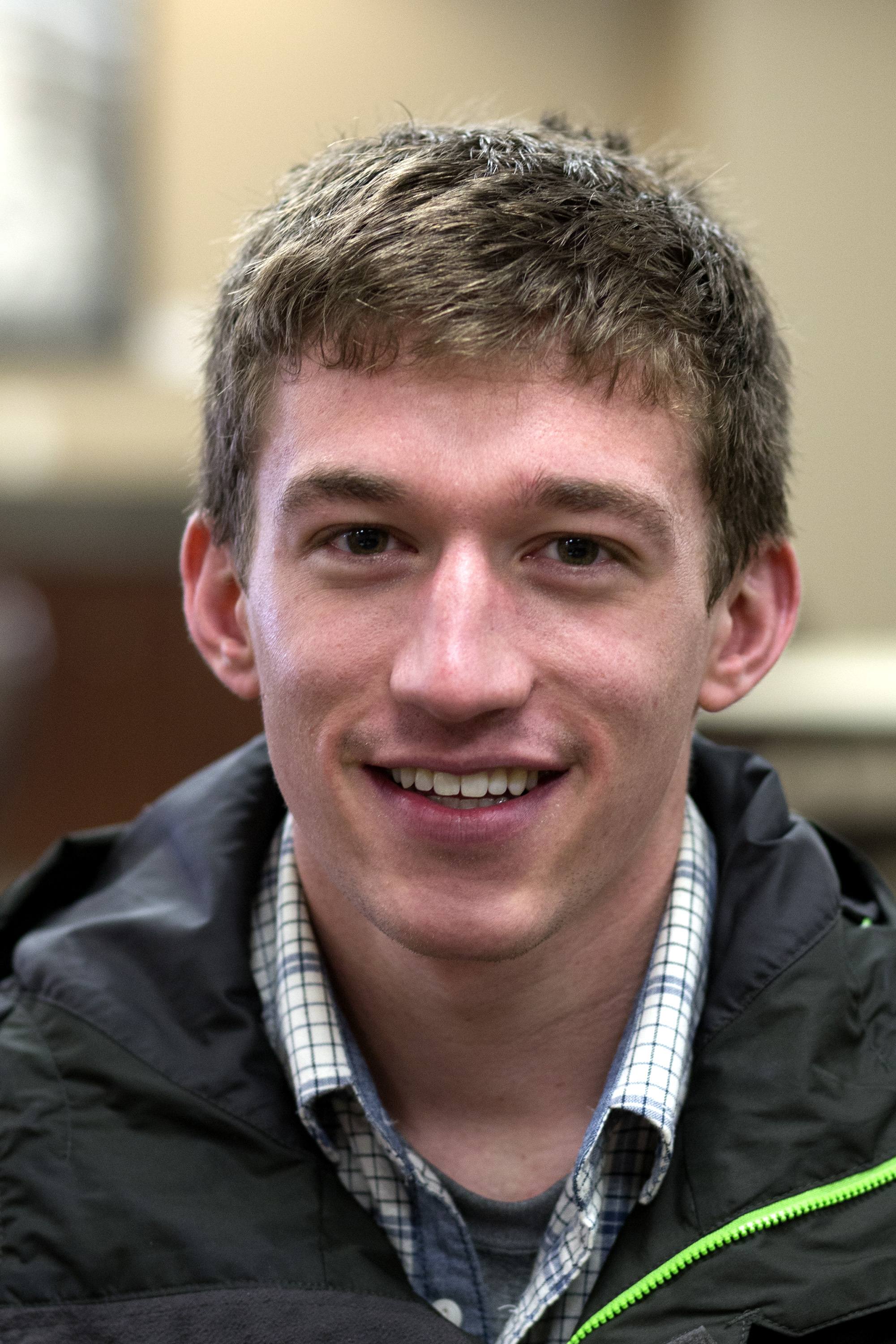 Major: Physics
Major: Physics Fed up with corruption, dynastic policies and ineffective public services, Indian voters catapulted Narena Modi and his Bharatiya Janata Party to power in the country's 2014 elections. For voters, Modi embodied real change and an India that wasn't stumbling, but running, to greatness. But for the U.S., change in India brings its own set of unknowns, heralding an age ruled by a prime minister new to national office and other policymakers who have been out of the public eye for a decade. Now, the U.S. has to determine how to best secure its interests as India asserts itself on the world stage.
Fed up with corruption, dynastic policies and ineffective public services, Indian voters catapulted Narena Modi and his Bharatiya Janata Party to power in the country's 2014 elections. For voters, Modi embodied real change and an India that wasn't stumbling, but running, to greatness. But for the U.S., change in India brings its own set of unknowns, heralding an age ruled by a prime minister new to national office and other policymakers who have been out of the public eye for a decade. Now, the U.S. has to determine how to best secure its interests as India asserts itself on the world stage. 2015 Spring Term Second Theater Presentation
2015 Spring Term Second Theater Presentation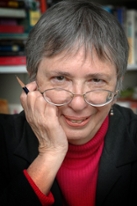 Barbara Corrado Pope, the author of three historical mysteries, will discuss her journey from academia to the world of publishing. The talk will focus on the process of writing historical fiction as well as the winding road that led to publication. She will also read illustrative excerpts from her books.
Barbara Corrado Pope, the author of three historical mysteries, will discuss her journey from academia to the world of publishing. The talk will focus on the process of writing historical fiction as well as the winding road that led to publication. She will also read illustrative excerpts from her books.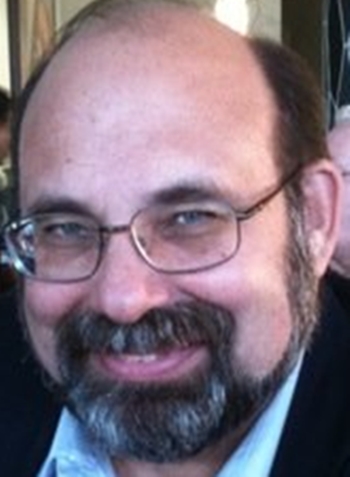 From a territory of Spain and in turn of France, to a province of Mexico, to an independent Republic of Texas, to a U.S. state, with a side trip through the Confederacy. A look at the history of Texas combined with a bit of lore concerning colorful and odd Texas politicians.
From a territory of Spain and in turn of France, to a province of Mexico, to an independent Republic of Texas, to a U.S. state, with a side trip through the Confederacy. A look at the history of Texas combined with a bit of lore concerning colorful and odd Texas politicians. 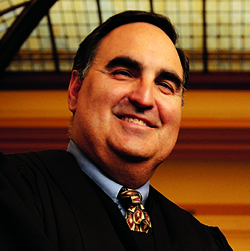 Paul De Muniz was chief justice of the Oregon Supreme Court from 2006 through 2012. As the head of Oregon's judicial branch of government De Muniz was responsible for the administration of Oregon's courts. De Muniz will discuss his tenure as chief justice, the current state of Oregon's courts, and what should be expected of Oregon's court system in the future."
Paul De Muniz was chief justice of the Oregon Supreme Court from 2006 through 2012. As the head of Oregon's judicial branch of government De Muniz was responsible for the administration of Oregon's courts. De Muniz will discuss his tenure as chief justice, the current state of Oregon's courts, and what should be expected of Oregon's court system in the future."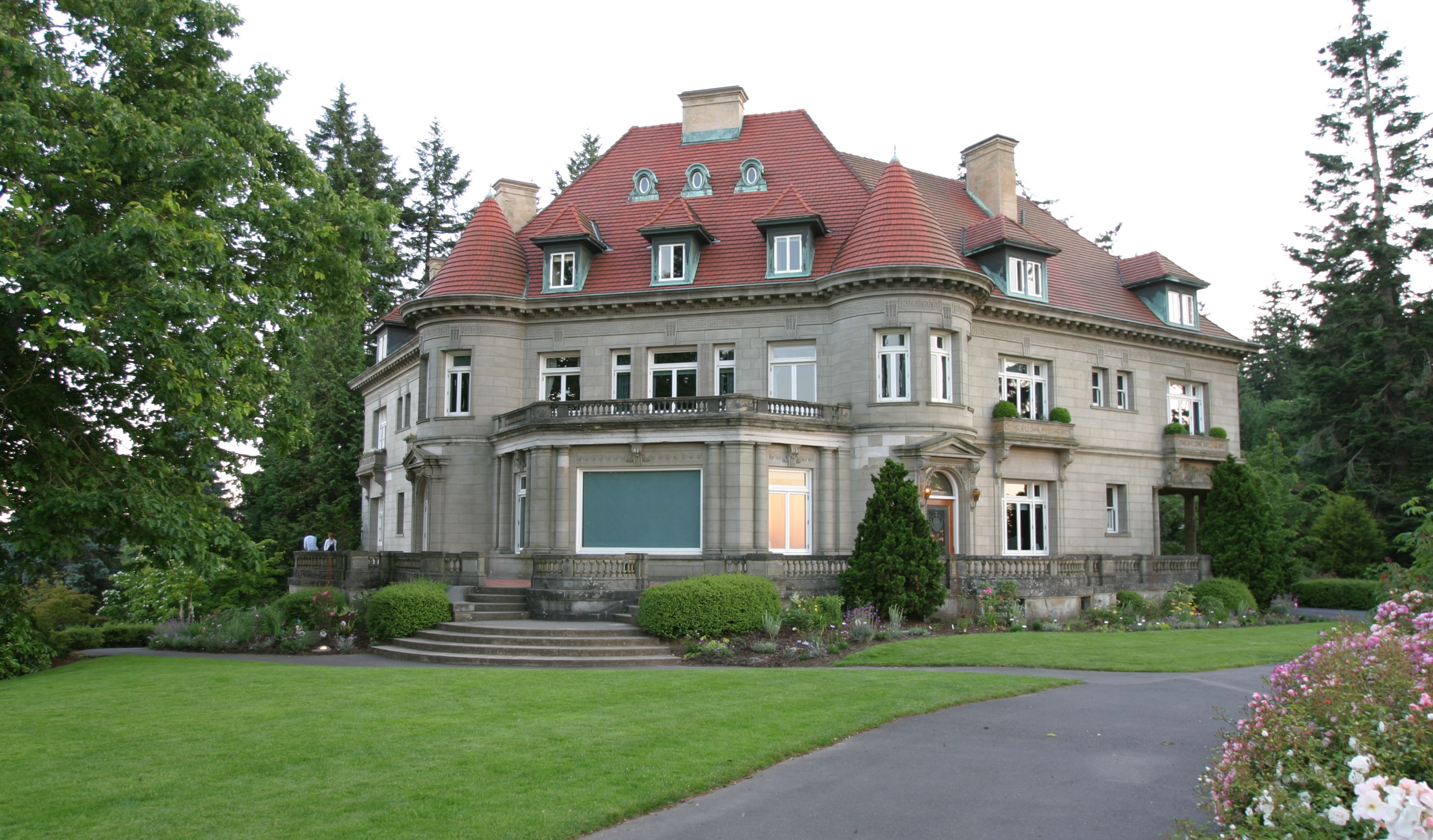 We will visit the Pittock Mansion in Portland, Oregon from, 11:00 a.m. - 12:15 p.m. This will be a self tour. (Volunteer guides are available for small groups).
We will visit the Pittock Mansion in Portland, Oregon from, 11:00 a.m. - 12:15 p.m. This will be a self tour. (Volunteer guides are available for small groups).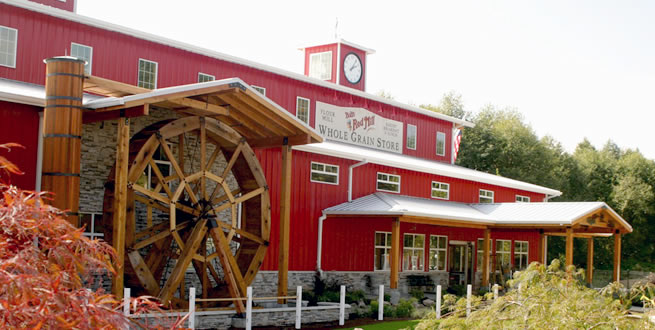 We will visit Bob’s Red Mill in Milwaukie, Oregon from 12:45 p.m. - 3:00 p.m. Bob’s Red Mill has ridden the wave of interest and enthusiasm in “Whole Grain Foods"
We will visit Bob’s Red Mill in Milwaukie, Oregon from 12:45 p.m. - 3:00 p.m. Bob’s Red Mill has ridden the wave of interest and enthusiasm in “Whole Grain Foods"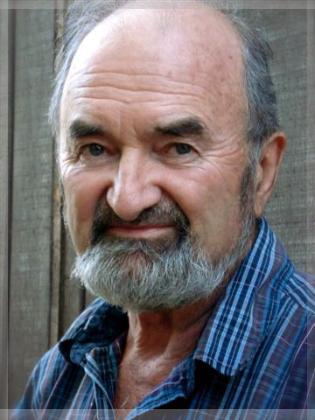 A Discussion of the Creation of the Holocaust Remembrance Oratorio "To Be Certain of the Dawn."
A Discussion of the Creation of the Holocaust Remembrance Oratorio "To Be Certain of the Dawn."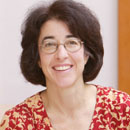 This presentation explores how the razing of a South Portland neighborhood under an Urban Renewal plan in the 1960s led to the birth of a new Oregon Jewish history. In an effort to tell the story of the immigrant experience in the soon-to-be paved over neighborhood, a group of Jewish women stepped forward to collect oral histories, write an original musical, and prepare a series of exhibits. In the process, they created Old South Portland, the product of communal memory and more general American Jewish tropes. Emerging at a time when the Lower East Side had become the iconic version of the East European immigrant story and while Fiddler on the Roof was playing on Broadway and on the silver screen, Old South Portland drew on both, importing elements of these stories and transposing them onto the local landscape.
This presentation explores how the razing of a South Portland neighborhood under an Urban Renewal plan in the 1960s led to the birth of a new Oregon Jewish history. In an effort to tell the story of the immigrant experience in the soon-to-be paved over neighborhood, a group of Jewish women stepped forward to collect oral histories, write an original musical, and prepare a series of exhibits. In the process, they created Old South Portland, the product of communal memory and more general American Jewish tropes. Emerging at a time when the Lower East Side had become the iconic version of the East European immigrant story and while Fiddler on the Roof was playing on Broadway and on the silver screen, Old South Portland drew on both, importing elements of these stories and transposing them onto the local landscape.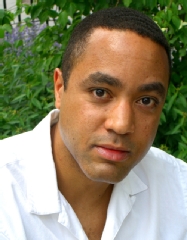
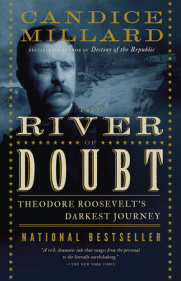 At once an incredible adventure narrative and a penetrating biographical portrait, The River of Doubt is the true story of Theodore Roosevelt’s harrowing exploration of one of the most dangerous rivers on earth.
At once an incredible adventure narrative and a penetrating biographical portrait, The River of Doubt is the true story of Theodore Roosevelt’s harrowing exploration of one of the most dangerous rivers on earth.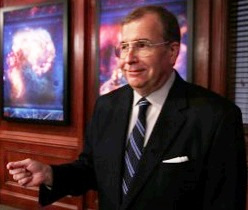 Since its 2110 launch into orbit, the Solar Dynamics Observatory has opened our eyes to the rich diversity and complexity of magnetic phenomena on the Sun. Its detailed full-disk extreme-ultraviolet images and movies of loops, flares, and coronal mass ejections are providing new insight on the physics of solar activity, while also illustrating the beauty and power of ionized gas in magnetic motion.
Since its 2110 launch into orbit, the Solar Dynamics Observatory has opened our eyes to the rich diversity and complexity of magnetic phenomena on the Sun. Its detailed full-disk extreme-ultraviolet images and movies of loops, flares, and coronal mass ejections are providing new insight on the physics of solar activity, while also illustrating the beauty and power of ionized gas in magnetic motion.